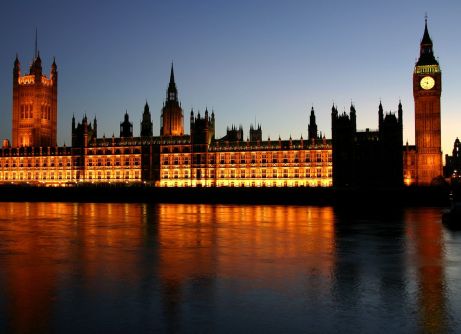Government Axes CIO Role Amid Digital Shakeup

The Cabinet Office has confirmed it is dropping the role of government CIO as part of its ongoing shakeup of ICT services
The UK government’s Digital Strategy continues apace and will see the main chief information officer role phased out, it has emerged.
In an update on progress, a number of surprising changes were revealed. First and foremost was the decision not to fill the role of government CIO, after the position was vacated by Andy Nelson, who is now CIO at the Department for Work and Pensions.
No replacement for CIO
Nelson had been appointed to the role in January 2012, taking over from Joe Harley, who announced he would retire from the civil service in November 2011.
The role has been subject to some criticism in the past, with critics saying there were signs the government was just treating the CIO post as a figurehead.
“The role vacated by former Government CIO…will not be filled, as the cross-government role is no longer central to delivery,” said the Cabinet Office, in a statement.
 Instead, 14 senior technical advisors are being appointed to government chief technology officer Liam Maxwell’s team in order to support government departments.
Instead, 14 senior technical advisors are being appointed to government chief technology officer Liam Maxwell’s team in order to support government departments.
“Andy Nelson has achieved remarkable feats in the Government CIO role, and the fact that he has moved to lead IT on a pivotal welfare reform project in such a high-profile department is evidence of his abilities,” said Stephen Kelly, Government COO.
“The legacy he has left means we are in a fantastic position to review our governance and set the direction for the future of our technology leadership.
“Governance is central to promoting a web-based, user focused and participative culture. Because it reflects what our users need from government digital services – but also because it helps us to deliver on our efficiency and reform priorities.”
And the Cabinet Office reassured that individual CIOs would still play an active role within various departments.
“CIOs will continue to play a crucial role where the role is adapted to user needs. For example, a CIO in the Department for Work and Pensions has a very different role to one in Defra, and both are led by the end service. Departmental digital leaders and CIOs will work closely together to drive digital transformation,” it said.
Government ICT Efficiency
The changes are part of the drive by Cabinet Office minister Francis Maude to reform and improve the efficiency of government ICT.
It estimates that moving services from offline to digital channels will save between £1.7 and £1.8 billion a year. It cited a National Audit Office report from January, which caused shock when it found that government plans to cut IT spending were actually working.
Indeed, that report highlighted the Coalition government is likely to meet, if not exceed, its target of £440 million savings for 2012-13 from the ICT spend control and shared ICT infrastructure programme. “By October 2012, £410 million had already been saved through these initiatives in 2012/13,” said the Cabinet Office.
The Cabinet Office also revealed a number of other actions to be undertaken, including departmental and transactional agency boards, which will include an active digital leader.
“Each department has appointed an active digital leader, working closely with Government Digital Service as part of a digital leader network,” it said.
Meanwhile, government services handling over 100,000 transactions each year will be redesigned, operated and improved by a “skilled, experienced and empowered service manager.”
The Cabinet Office said that from April 2014, all new or redesigned transactional governmental services will meet the Digital by Default service standard, in order to ensure consistency and quality across government’s digital services, and put user needs firmly at the heart of service design.
“We want an exceptional Civil Service delivering the best for Britain: more skilled, less bureaucratic and more unified,” said Kelly. “The world has changed and so must we – and ensuring we are equipped for the digital future is part of that.”
He said that roughly £1.2 billion of savings could be made during this Parliament alone by bringing central government transactional services online.
Public Sector IT – triumph or disaster? Try our quiz!